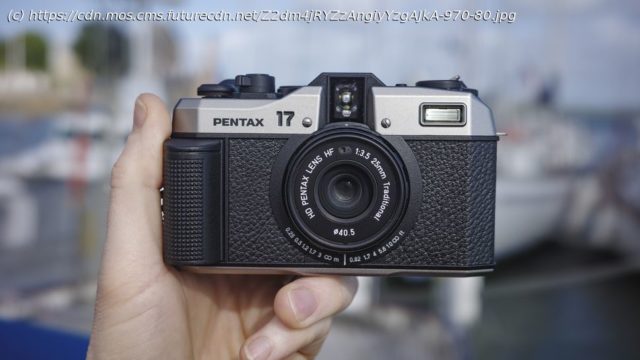Hands-on with the half-frame Pentax 17 compact film camera turned into a real treat. eventually
Pentax has unveiled its first film camera in over 20 years, the Pentax 17. It’s camera number one in the Pentax Film Project, announced at the end of 2022 with one goal: to develop film cameras for today’s TikTok generation.
Film photography has enjoyed a revival in recent years and Pentax, being an analog veteran, is well-positioned to bring something new to the table for film beginners. Cue the Pentax 17: a new half-frame compact film camera, developed by Pentax engineers past and present.
I was one of the lucky few to be sent the Pentax 17 ahead of its launch and have had a decent hands-on time with the retro camera already. It’s a wonderfully simple point-and-shoot remedy to the best mirrorless cameras I use daily for photography and video.
In fact, the Pentax 17 marked the first time I’ve shot on 35mm film in years, so how was the experience, and has the 17 been worth the wait? A film camera for 2024?
As a serious photographer, I initially wasn’t overly enamored by the Pentax 17. It felt too light, too plasticky, too toy-like. And its shooting mode dial with a ‚bokeh‘ setting felt a little too beginner-y.
But my first and last proper analog experiences were in the 1990s and 2000s, with old-school SLR cameras made from proper metal parts. We’re in 2024 now, and there’s a new crowd embracing film, and the more I thought about the 17, the more its design makes sense.
It sits somewhere down the middle of traditional SLR cameras like the Pentax ME Super and a point-and-shoot compact film camera like the Kodak H35 Ektar. If a smartphone is your primary camera, then the Pentax 17 is a sensible introduction to film.
You get a compact build, simple point-and-shoot controls, and a tiny fixed wide-angle lens with a similar perspective to the main camera on your phone. And the Pentax 17 is a half-frame film camera, which again makes a lot of sense for 2024.
Half-frame cameras use the widely available 35mm film, only you get double the number of shots on the film roll.






